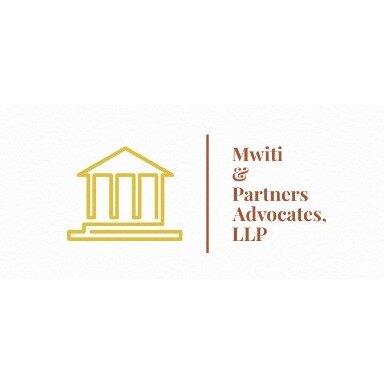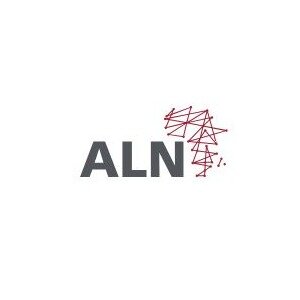Best Project Finance Lawyers in Kenya
Share your needs with us, get contacted by law firms.
Free. Takes 2 min.
Or refine your search by selecting a city:
List of the best lawyers in Kenya
Legal guides written by Adroit Law LLP:
- Kenya Launches Digital Nomad Visa: A Gateway for Remote Workers
- Navigating the Payment System License Maze in Kenya
- Navigating the Complexities of Mining Licenses and Permits in Kenya: A Look into Artisanal and Large-Scale Operations
About Project Finance Law in Kenya
Project finance in Kenya refers to the legal and financial structuring of large-scale infrastructure or industrial projects, such as roads, energy plants, railways, ports, or telecommunications networks. Rather than relying solely on a company's balance sheet, these projects are financed through a mixture of debt and equity where the repayment is primarily sourced from the revenue generated by the project itself. In Kenya, project finance arrangements are common for both public and private sector projects, often involving multiple stakeholders including investors, lenders, contractors, government agencies, and sometimes international development finance institutions.
Why You May Need a Lawyer
Project finance transactions are complex and involve a wide range of legal, regulatory, and financial considerations. You may need a lawyer if you are:
- Seeking to invest in, develop, or finance a large infrastructure or industrial project in Kenya
- Drafting or negotiating contracts such as concession agreements, power purchase agreements, or engineering-procurement-construction (EPC) contracts
- Navigating regulatory approvals, permits, or compliance with government policies
- Managing risks and liabilities associated with long-term projects
- Engaging with international lenders, multilateral agencies, or foreign investors
- Dealing with disputes or potential defaults during the project’s lifecycle
Legal counsel ensures you understand your rights and obligations, aids in structuring the transaction optimally, helps manage risks, and protects your interests throughout the project.
Local Laws Overview
Kenya has developed a supporting legal and regulatory regime for project finance, driven by the need for infrastructure development. Key features of the local legal landscape include:
- Public-Private Partnership (PPP) Act: Governs collaboration between the government and private sector in delivering public infrastructure and services. It sets out procedures for procurement, approval, and management of PPP projects.
- Land Laws: The Land Act, Land Registration Act, and the Constitution provide a framework for land acquisition, registration, leasing, and transfer - crucial for projects requiring significant land use.
- Securities and Collateral: The Moveable Property Security Rights Act and the Companies Act guide the use of project assets and cash flows as collateral for financing.
- Sector-Specific Regulation: Projects in sectors like energy, transport, real estate, and water have regulatory oversight bodies and specific licensing requirements such as ERC for power or NLC for land matters.
- Taxation: Kenya’s Income Tax Act and related laws impact the financial modeling and viability of projects, determining tax incentives or exemptions.
- Environmental Compliance: National Environment Management Authority (NEMA) mandates environmental impact assessments and compliance certificates for most projects.
- Dispute Resolution: Many project finance contracts provide for arbitration, with Kenya being a signatory to international conventions such as the New York Convention.
Frequently Asked Questions
What is project finance and how does it differ from regular business loans?
Project finance is a method of funding large infrastructure or industrial projects where the financing is secured by the project’s assets and repaid from project revenues, rather than relying solely on the borrower’s balance sheet. This differs from regular business loans, which are typically based on the borrower’s overall creditworthiness.
Who are the typical parties involved in a project finance transaction in Kenya?
Typical parties include project sponsors (developers), lenders (banks or financial institutions), the government (for public projects), contractors, suppliers, and sometimes multilateral agencies such as the World Bank or African Development Bank.
What are common risks in project finance and how can they be managed in Kenya?
Risks include construction delays, cost overruns, regulatory changes, environmental liabilities, and payment defaults. Proper contractual structuring, insurance, government guarantees, and due diligence are ways to mitigate these risks.
How are security interests in project assets created and enforced?
Security interests are typically created through legal charges, debentures, or assignments over project assets. The Moveable Property Security Rights Act enables the registration and enforcement of security over movable assets, while the Companies Act provides for registration over company assets.
What approvals are generally required for a project finance deal in Kenya?
Common approvals may include regulatory licenses (sector-specific), environmental compliance certificates, land acquisition permits, government consents for PPP projects, and competition authority clearance in certain cases.
Can foreign investors participate in project finance projects in Kenya?
Yes, foreign investors can participate, subject to compliance with local laws, restrictions on land ownership by non-citizens, investment registration with the Kenya Investment Authority, and central bank or treasury approvals for foreign loans.
What tax incentives are available for project finance projects?
Kenya offers various incentives, including capital allowances, investment deductions, VAT exemptions, and special economic zone benefits. The availability depends on the project type, location, and sector.
How are disputes typically resolved in project finance transactions?
Disputes are often resolved through arbitration, either locally or internationally. Contracts might specify the method, venue, and applicable law for dispute resolution.
How long does it typically take to finalize a project finance deal in Kenya?
Timeframes vary depending on the project's size, complexity, sector, and the time required to obtain approvals. A typical process may take several months to over a year.
Are there restrictions on repatriating profits or loan repayments for foreign investors?
Repatriation of profits or repayments is allowed, but subject to compliance with tax obligations and Central Bank of Kenya foreign exchange control regulations.
Additional Resources
For further information and support, consider consulting or visiting the following institutions and resources:
- Kenya Investment Authority (KenInvest) for investor guidelines
- Public-Private Partnerships Directorate under the Ministry of Finance for PPP information
- National Environment Management Authority (NEMA) for environmental approvals
- Capital Markets Authority for capital raising and securities regulation
- Kenya Law Reports for up-to-date legislation
- Professional organizations such as the Law Society of Kenya
- Sector-specific regulators for energy, transport, and communications
- Major law firms specializing in banking, finance, and infrastructure law
Next Steps
If you are considering engaging in a project finance transaction in Kenya, it is advisable to take the following steps:
- Identify and clearly define your project’s objectives and structure
- Engage a reputable law firm or lawyer specializing in project finance and infrastructure transactions
- Conduct preliminary due diligence on land, regulatory requirements, and key stakeholder interests
- Assess potential financiers, investors, or partners and initiate early discussions
- Commission comprehensive feasibility and environmental studies as required
- Work closely with your lawyer to prepare, review, and negotiate the necessary agreements and documentation
- Obtain all the required regulatory approvals and licenses
- Establish ongoing compliance, monitoring, and reporting mechanisms to manage the project’s legal and operational risks
By following these steps with the support of experienced legal professionals, you can manage risks, unlock financing, and successfully deliver your project in Kenya.
Lawzana helps you find the best lawyers and law firms in Kenya through a curated and pre-screened list of qualified legal professionals. Our platform offers rankings and detailed profiles of attorneys and law firms, allowing you to compare based on practice areas, including Project Finance, experience, and client feedback.
Each profile includes a description of the firm's areas of practice, client reviews, team members and partners, year of establishment, spoken languages, office locations, contact information, social media presence, and any published articles or resources. Most firms on our platform speak English and are experienced in both local and international legal matters.
Get a quote from top-rated law firms in Kenya — quickly, securely, and without unnecessary hassle.
Disclaimer:
The information provided on this page is for general informational purposes only and does not constitute legal advice. While we strive to ensure the accuracy and relevance of the content, legal information may change over time, and interpretations of the law can vary. You should always consult with a qualified legal professional for advice specific to your situation.
We disclaim all liability for actions taken or not taken based on the content of this page. If you believe any information is incorrect or outdated, please contact us, and we will review and update it where appropriate.
Browse project finance law firms by city in Kenya
Refine your search by selecting a city.

















